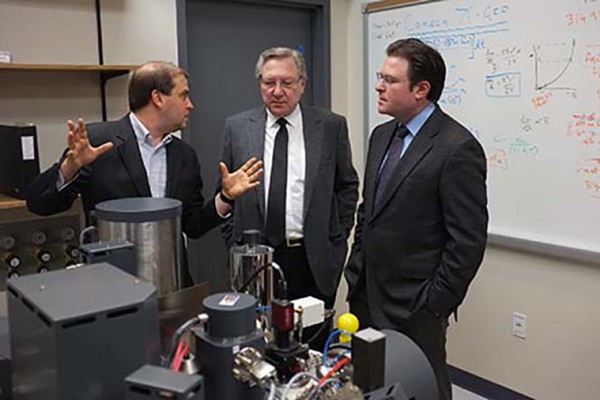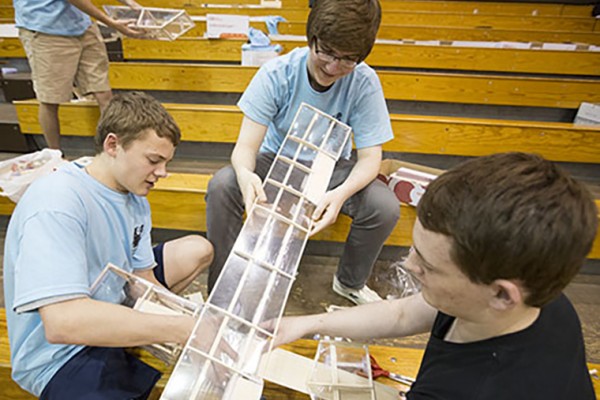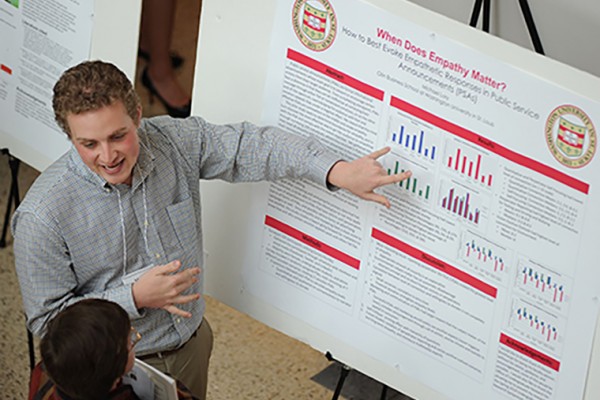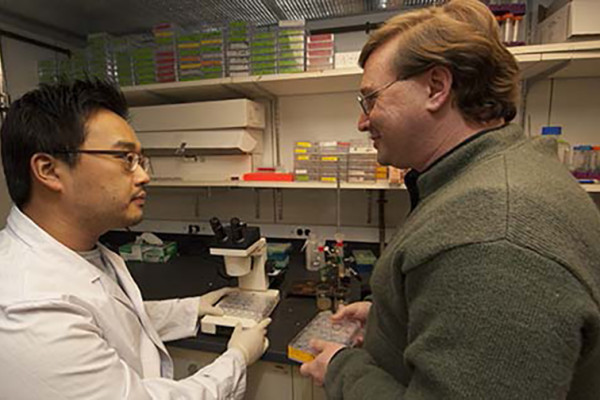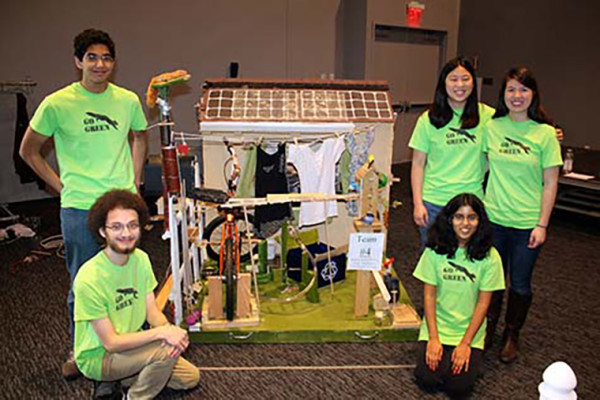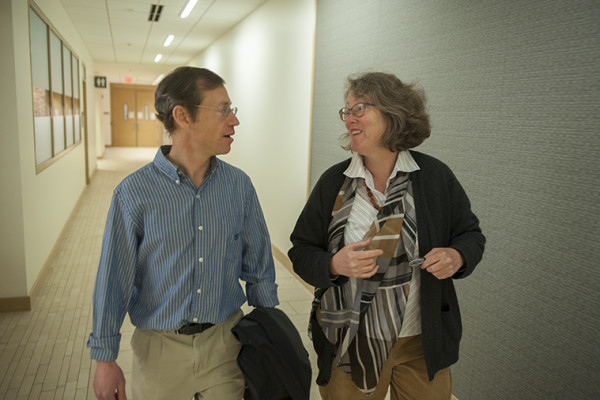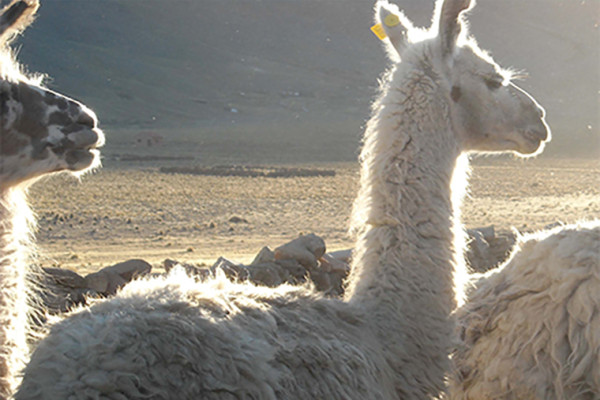SIMS laboratory dedicated
Last week, the university dedicated the Grossman Family SIMS Laboratory in Rudolph Hall. The build-out of the lab was funded by a gift from the family of WUSTL alumnus Matthew Grossman. The space houses a state-of-the-art secondary-ion mass spectrometer that will be used primarily for the analysis of geological samples but also will be available to members of the newly founded Institute of Materials Science and Engineering to study problems in the analysis and design of materials.
Taking flight
Students from Eureka High School prepare their plane for launch during the Boeing Design Challenge at the Washington University Field House April 29. They were among 110 area high school students from six school districts on 26 teams who designed and hand-launched balsa wood gliders in different competitions, learning concepts of physics and engineering. The teams were assisted by engineers from Boeing Co.
Displaying depth, breadth of undergrad research
More than 170 Washington University in St. Louis undergraduates showcased their research projects through poster, visual and oral presentations during the 2014 Spring Undergraduate Research Symposium, held April 28 in Bauer and Knight halls.
University makes major solar commitment
Washington University in St. Louis is moving forward with a bold and impactful plan to increase solar output on all campuses by 1,150 percent over current levels by this fall. The project demonstrates the university’s commitment to sustainable operations and to reducing its environmental impact in the St. Louis region and beyond.
A protein key to the next green revolution sits for its portrait
Scientists are beginning to talk about re-engineering crop plants so that, like legumes, they will have on-site nitrogen-fixing systems, either in root nodules or in the plant cells themselves. The structure of a protein called NolR that acts as a master off-switch for the nodulation process, published in the April 29 issue of PNAS, brings them one step closer to this goal.
WUSTL team wins People’s Choice Award at 2014 Rube Goldberg
The Green Machine designed by undergraduates at Washington University in St. Louis won the People’s Choice, second place and Best Single Step awards at the 2014 Rube Goldberg Machine Contest. The national competition was held at the Center of Science and Industry in Columbus, Ohio, earlier in April. Several of the students were also on the team that won first place last year.
Science of learning book offers tips to ‘Make it Stick’
“Make it Stick: The Science of Successful Learning” offers students of all ages a clear and
compelling primer on the best and worst ways to store and retrieve new
knowledge. The book is co-authored by psychologists Henry L. “Roddy” Roediger III and Mark A. McDaniel, leading experts on human learning and memory at Washington University in St. Louis, along with nonfiction writer and novelist Peter C. Brown.
More questions than answers as mystery of domestication deepens
A recent interdisciplinary conference that led to the publication of a special issue of PNAS on domestication raised more questions than it answered. Washington University in St. Louis scientists Fiona Marshall and Ken Olsen, who participated in the conference and contributed to the special issue, discuss some of the key questions that have been raised about this pivotal event in human history.
The story of animal domestication retold
A review of recent research on the
domestication of large herbivores for “The Modern View of
Domestication,” a special feature of PNAS, suggests that neither intentional
breeding nor genetic isolation were as significant as traditionally
thought.
Moon receives National Science Foundation CAREER Award
Scientists often use things in nature as a model to
make new things, such as using birds as models for airplanes. One WUSTL
engineer is using a basic cell as a
model to make genetically engineered bacteria that would produce
biofuel or pharmaceuticals. Tae Seok Moon, PhD,
has received a prestigious Faculty Early Career Development
Award from the National Science Foundation for his project, “Engineering
Biological Robustness through Synthetic Control.”
Older Stories
